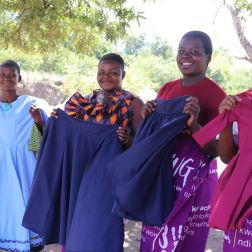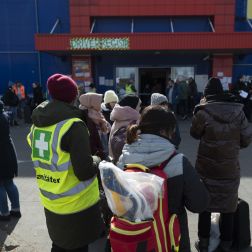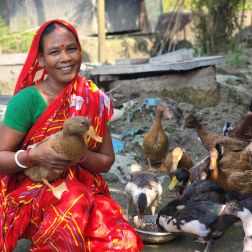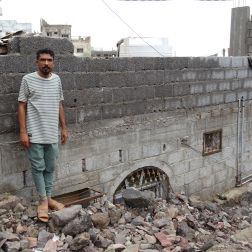- 4 mins read time
- Published: 31st October 2017
One jar of paracetamol for 24,000 people - it just doesn't add up
I recently returned from a trip to Malawi, my second visit to the country with Oxfam Ireland. Like citizens everywhere, Malawians have a right to good healthcare. Sadly, this isn’t the case. An unfair tax system means that the nation’s medical facilities are overburdened – and even though Malawi has some of the best health policies in the world, ill-managed public funds means they can’t be put into practice.
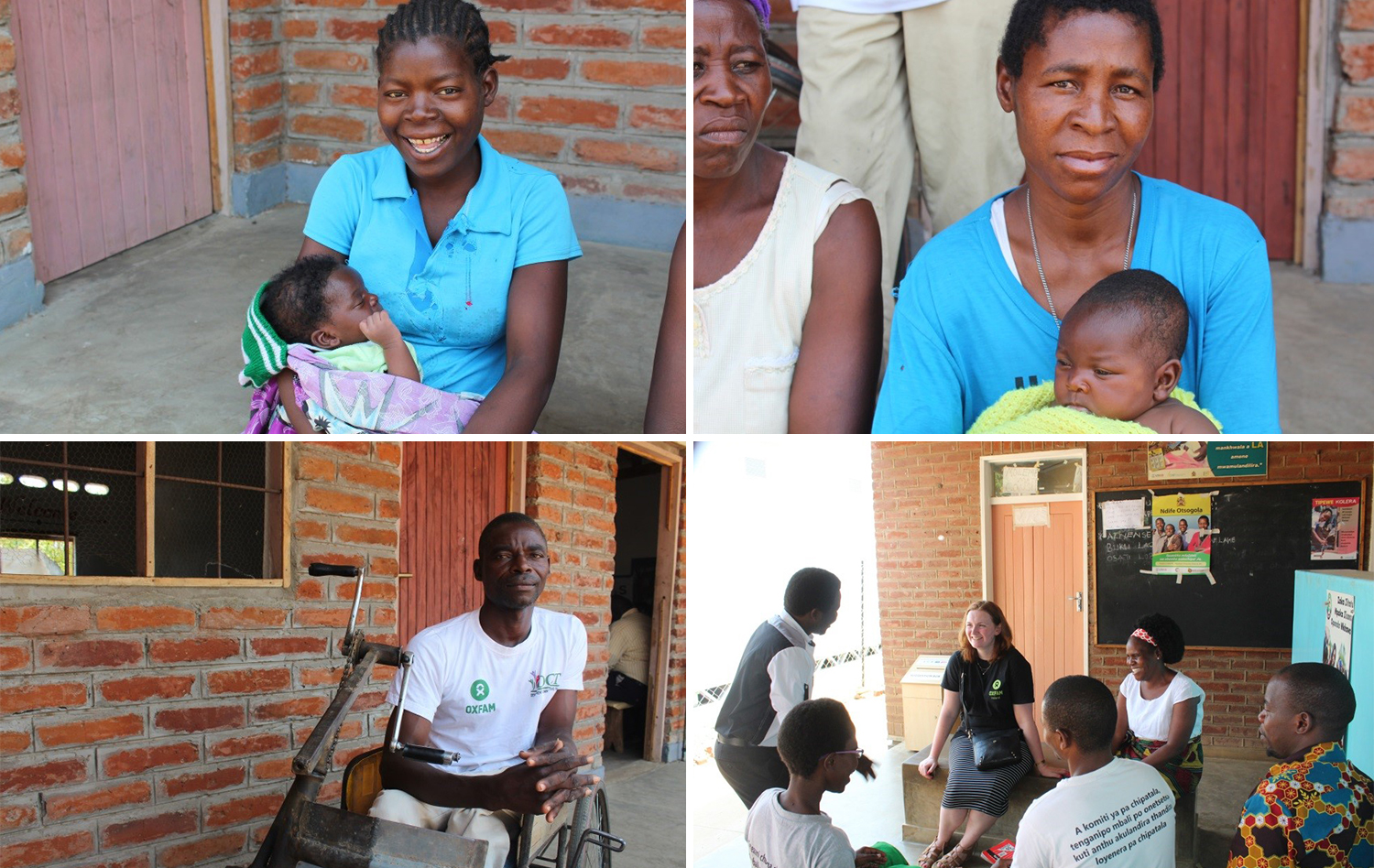
(Top-Left) Maria Gilasiano with her baby daughter outside Phimbi Health Centre. Photo: Mathias Kafunda. (Top-Right) Liness Pensulo and her baby daughter. Photo: Mathias Kafunda. (Bottom-Left) Disability Committee member Peter Simoni. Photo: Mathias Kafunda. (Bottom-Right) Clockwise from left: James Afuwa, Medical Assistant for Phimbi Health Centre; Niamh Ní Ruairc of Oxfam Ireland; Bettie Chumbu, DCT Project Officer; Alex Chiphathi , Monitor of Phimbi Radio Listening Club; Asima Stambuli, Ward Councillor for Utale Ward, and Zione Mayaya, DCT Project Coordinator. Photo: Mathias Kafunda
During my trip I visited Phimbi Health Centre in Phimbi, Balaka South. It was originally built to serve a population of 10,000 but now facilitates at least 24,000. When I visited, there was just one container of paracetamol in the drugs cabinet. I was also shown the maternity ward’s four beds – that’s four beds for 200 births every month. And while the staff do their best, they too are struggling due to a lack of resources. A shortage of manpower doesn’t help – the centre should have 60 staff members but poor funding has seen that number cut to 30.
Over a small sink in the maternity ward a sign which reads ‘Sambani mmanja pano’ translates as ‘Wash your hands’. But there is no water, no drinkable water, at least. A borehole outside the centre was dug between two septic tanks. As you can imagine, that water isn’t safe to drink. Although the health centre doesn’t use the water, people living in the local community do – leaving them exposed to a whole host of diseases. Those who want clean water have to travel 2km to collect it. That means that women, despite being exhausted and still suffering the pain of childbirth, have to make a 4km-round trip on foot just to clean themselves.
Another lifeline pulled from the centre due to a lack of resources is an ambulance. Its vehicle was taken by the district hospital – which too was hit by underfunding – and was never replaced. These days, if the health centre can’t deal with a patient’s condition, the ambulance must be called from the District Hospital of Balaka, a two-and-a-half hour drive away. This has led to women giving birth – sometimes unaided – in the back of an ambulance as they are transferred to hospital.
I met one woman who found herself in that situation. Maria Gilasiano gave birth in the back of an ambulance as it made its way to the district hospital. She was being transferred due to complications during labour and ended up delivering her baby herself during the journey. Also in the ambulance at the time was Peter Simoni, a member of the local Disability Committee. Amid the chaos of the birth, Maria and Peter’s bloods got mixed – and while it was not a danger to life, it shows that a lack of resources can pose serious hygiene risks.
Of course, these are risks that Peter knows all too well. There is no wheelchair ramp at the health centre so when he visits, he is forced to crawl on his hands and knees to get into the building – and the toilets, thereby exposing him to potentially dangerous bacteria and germs.
Those living in the community also face drugs shortages. Liness Pensulo, another woman I spoke to, couldn’t get malaria tablets for her young son as they weren’t available at the health centre at the time. Instead, she had to travel to a private chemist where she had to pay significantly more. Worse still, she didn’t get proper instructions on how to administer the drugs to her child. The potential consequences of incorrect dosages can be fatal.
Every day, across the world, lives are put at risk due to unfair tax systems. In Malawi, Oxfam Ireland is working with our partner Development Communications Trust (DCT) to help marginalised communities get access to the healthcare they deserve.
Niamh Ní Ruairc is Programme Quality Officer with Oxfam Ireland
